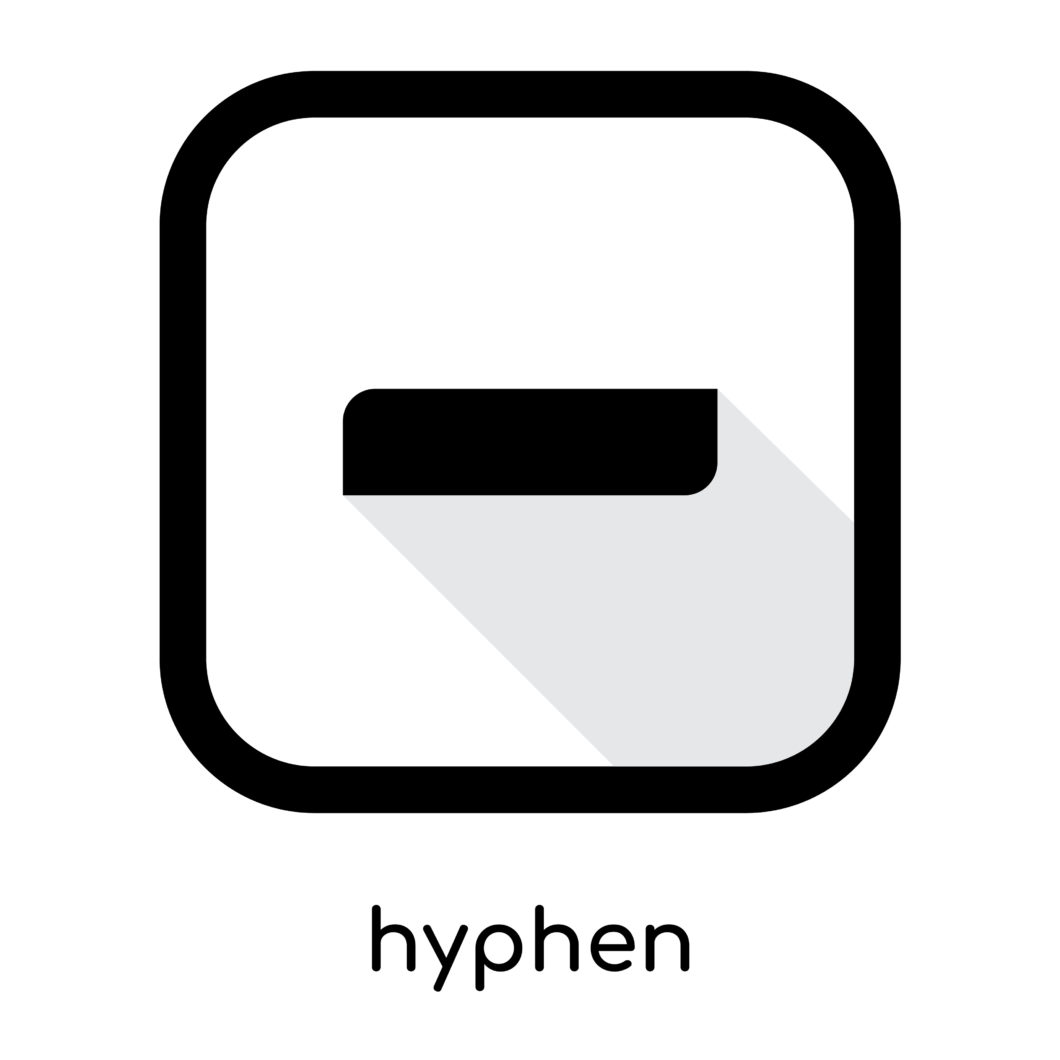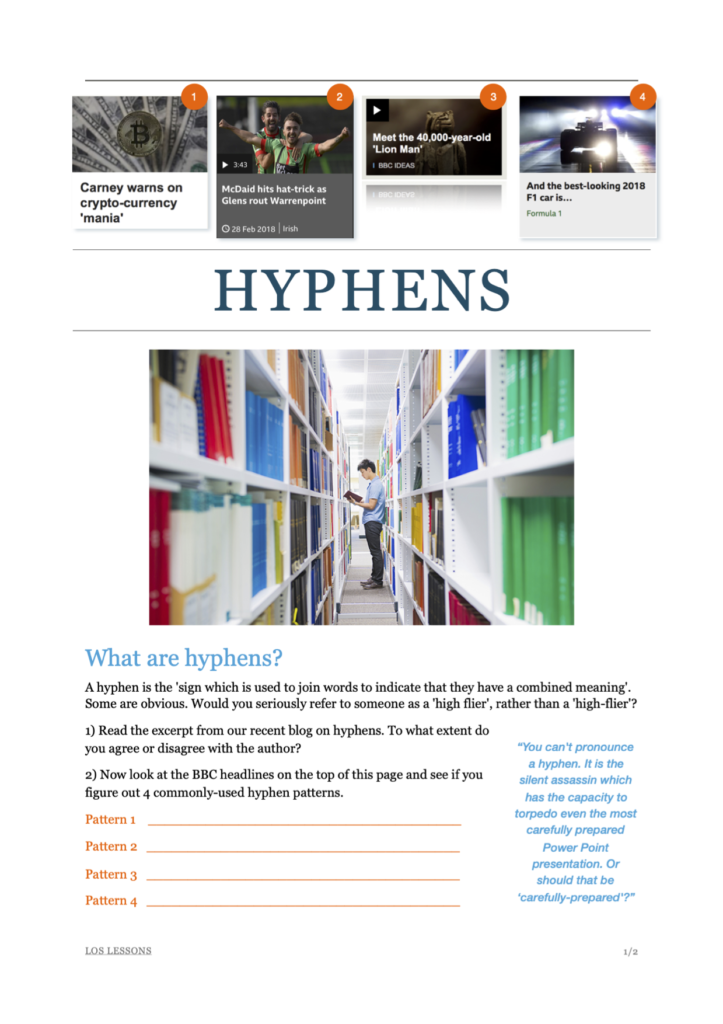Do you know what a fen is? It’s “a low and marshy, or frequently flooded, area of land”. The ‘low’ bit is a shame, because I really need there to be a ‘high’ version. Not as part of some topographical experiment, but because I need a linguistic aid.
I want to talk to you about hyphens. Not ‘low fens’ but ‘high fens’. Get it?
Pronunciation is only the beginning of the problem. The meat is in the usage. A hyphen is ‘the sign which is used to join words to indicate that they have a combined meaning’. Some are obvious. Would you seriously refer to someone as a ‘high flier’, rather than a ‘high-flier’? Or ‘good hearted’, instead of ‘good-hearted’? Or ‘star struck’ rather than ‘star-struck’? Maybe you would. Maybe it doesn’t matter.
Of course, there is no auditory difference whatsoever. You can’t pronounce a hyphen. This grammatical phenomenon doesn’t even have any equivalent to the ‘bunny ears’ of manual quotation marks. It is the silent assassin, the absence of which has no repercussions in conversational speech, but which has the capacity to torpedo even the most carefully prepared Power Point presentation. Or should that be ‘carefully-prepared’?
There is a saying in English which tries to justify any grammatical inconsistencies. If something goes against the norms of the language, orthodoxy asserts that it is ‘the exception which proves the rule’ (TEWPTR). For instance, when the spelling convention of “I before E, except after C” is clearly broken by words such as ‘science’ or ‘feisty’, we just rely on TEWPTR. Or when the London train station, made famous by the Harry Potter films, goes by the name of Kings Cross, with no hint of an apostrophe? TEWPTR. It is a catch all. Or catch-all.
And that’s the problem with hyphens. You just have to feel when they are applicable; feel when they are needed to prevent ambiguity – certainly when the words in question only hunt in twos – though a gerund will always attract our little dash: chain-smoking, long-suffering, hard-drinking, and so on. The task becomes a tad more obvious when a third ball is lobbed into this punctuational juggling act.
How about ‘super powered cars’; or ‘crime fighting detective’; or ‘Swiss based company’; or ‘elite level player’? Where does the hyphen go, if it goes anywhere? I know where I would put it but, as The Word Alive nearly said, ‘the rules are that there are barely any rules’. You decide the emphasis according to the prevalent conditions and the words which you want to link. If, for example, the next global conflagration breaks out in Africa, will it be a third world war, a third-world war or a third world-war? The decision is yours, but make sure you think about it before you put it up on a screen in front of a native-speaking audience. See what I did there? No-brainer!
In the following lesson you can learn and practise how to use the hyphen correctly.
Rory Mulvihill, LOS Consultant

